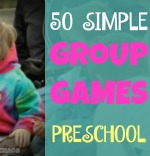Do you Remember this Fun, Thanksgiving Song?
Need some music for your next Thanksgiving holiday event? Over the River and Through the Woods is a fun song to sing on the way to Grandma's house for Thanksgiving! Most people think it is a Christmas song, but it was originally written as a poem for Thanksgiving. Enjoy!
Over The River and Through the Woods Poem for Thanksgiving.
Growing up, we sang this Thanksgiving song every year on the way to Grandma's house for Christmas.
Facebook Fall Header.
Over The River and Through the Woods Poem for Thanksgiving.The image is sized to use as a FREE Facebook header. Save a copy and add it to your page or profile.
- Over the river, and through the wood,
- To Grandfather's house we go;
- The horse knows the way to carry the sleigh
- through the white and drifted snow.
- Over the river, and through the wood—
- Oh, how the wind does blow!
- It stings the toes and bites the nose
- As over the ground we go.
- Over the river, and through the wood,
- To have a first-rate play.
- Hear the bells ring, "Ting-a-ling-ding",
- Hurrah for Thanksgiving Day!
- Over the river, and through the wood
- Trot fast, my dapple-gray!
- Spring over the ground like a hunting-hound,
- For this is Thanksgiving Day.
- Over the river, and through the wood—
- And straight through the barnyard gate,
- We seem to go extremely slow,
- It is so hard to wait!
- Over the river, and through the wood—
- Now Grandmother's cap I spy!
- Hurrah for the fun! Is the pudding done?
- Hurrah for the pumpkin pie!
Recommended Reading:
Turkey Thanksgiving Book for Kids
Turkey Craft for Thanksgiving
Fun Edible Turkey Craft for Thanksgiving
ADS DISCLOSURE: We've partnered with some wonderful advertisers who may sponsor blog posts or send us samples to test. Some companies pay us to review their products.
*We also use affiliate links, if you make a purchase we get a tiny commission. Kids Creative Chaos participates in the Amazon LLC Associates Program*, an affiliate advertising program designed to provide a mean for blogs to earn advertising fees by linking to Amazon properties, including, but not limited to, amazon.com, endless.com, myhabit.com, smallparts.com, or amazonwireless.com. We also offer Tapinfluence, Google Adsense, SoFab, and Izea ads here. Thanks so much for helping us keep the lights on! :)
























